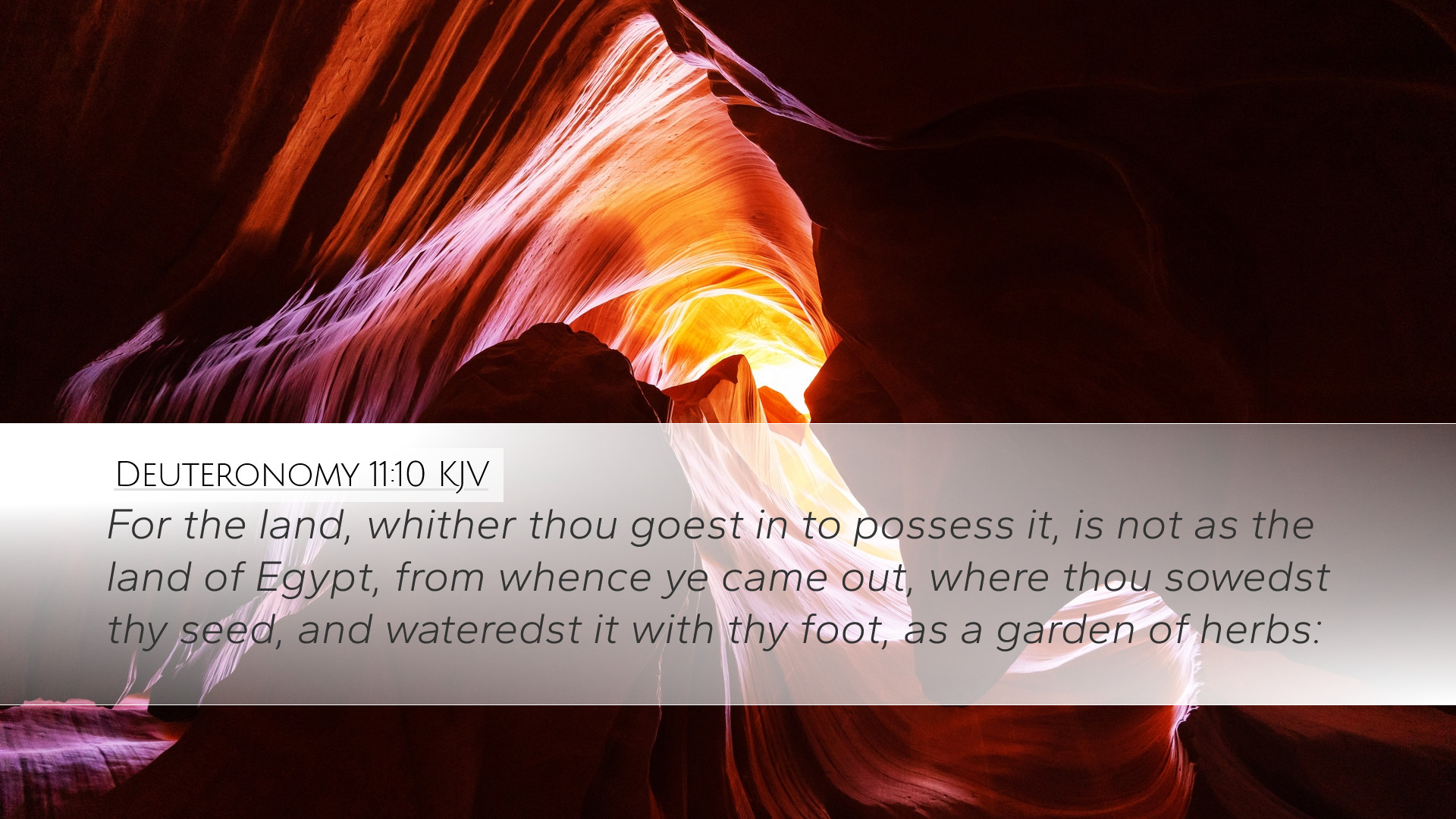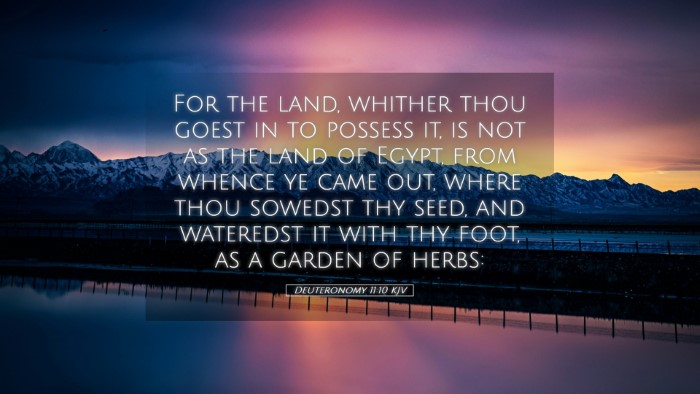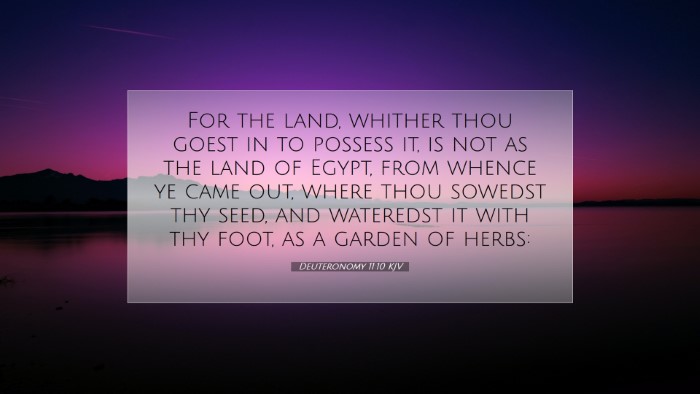Commentary on Deuteronomy 11:10
Verse Context: Deuteronomy 11:10 states, "For the land, whither thou goest in to possess it, is not as the land of Egypt, from whence ye came out, where thou sowed thy seed, and watered it with thy foot, as a garden of herbs." This verse is a part of Moses' exhortation to the Israelites, likening their future in the Promised Land to their past experiences in Egypt.
General Overview
The comparison made in this verse not only emphasizes the differences in the land's productivity but also highlights the distinct nature of the Covenant Land. The Promised Land represents a divinely appointed inheritance that requires faith in God's provision and obedience to His laws.
Commentary Insights
Matthew Henry's Commentary
Overview: Matthew Henry notes the contrast between Egypt and Canaan. In Egypt, the Israelites relied on human effort—"watering it with thy foot" refers to manual irrigation systems, whereas in Canaan, God Himself would provide the rain and nourishment necessary for crops.
- Dependence on God: The commentary emphasizes that the Israelites must depend on God for their needs in the new land, which contrasts with their reliance on their own efforts in Egypt.
- Spiritual Application: This dependence signifies a deeper spiritual truth where believers now must trust in God's provision over their self-sufficiency.
- Faithfulness of God: Henry points out that the land reflects God's promise to be faithful to His people and that blessings will come as they obey His commandments.
Albert Barnes' Notes on the Bible
Comparison of Lands: Barnes elaborates on the stark contrasts between Egypt's fertile but insecure land and Canaan’s land which is inherently blessed by God. He further elucidates the nuances regarding the agricultural practices of Egypt contrasted with the agricultural reliance on God in Canaan.
- Covenantal Relationship: The land of Canaan is portrayed not merely as a physical space but as part of a divine covenant where obedience is key to prosperous living.
- Nurturing Faith: Barnes argues that faith nurtures the heart, calling for a response from the Israelites that aligns with God’s expectations as they enter a land flourishing with promise.
- Lessons for Today: The lessons drawn indicate that spiritual growth requires reliance on God's promises rather than just human strategizing.
Adam Clarke's Commentary
Historical Context: Clarke comments on the historical background leading to this verse, emphasizing the experience of Israel in Egypt as a formative period that shaped their identity.
- Transition of Trust: The transition from Egypt to Canaan symbolizes a newfound faith, advocating a departure from the old ways of relying on tangible results to reliance on God's unseen provisions.
- Nature of the Land: He further discusses the geological and agricultural advantages of Canaan, which was located in a region dependent on rainfall rather than irrigation, signifying a reliance on God for sustenance.
- Theological Implications: Clarke emphasizes the theological implication that God's sustenance becomes a metaphor for spiritual nourishment and growth in one's faith journey.
Theological Reflections
The insights drawn from these commentaries encourage deeper theological reflections on the nature of God’s promises. The requirement of faith amidst uncertainties enhances believers' spiritual growth.
- Faith in Providence: Just as the Israelites had to trust in God’s provision in Canaan, modern believers are called to trust in His divine plan amidst life's uncertainties.
- Obedience in the Land: The emphasis on obedience to God's law as a pathway to receiving the blessings of the land serves as a reminder for contemporary Christians to align their lives accordingly.
- Covenant Identity: This scripture reiterates the importance of understanding one's identity in relation to God—moving from a place of oppression to a promised inheritance is a central narrative for the faithful.
Conclusion
Deuteronomy 11:10 serves as a rich text that reveals deep truths about God's character, the importance of faith, and the life of obedience. As pastors, students, theologians, and Bible scholars delve into this verse, they are reminded of the profound transition from dependency on self to reliance on divine provision, and the call to live faithfully in alignment with God's commandments.


